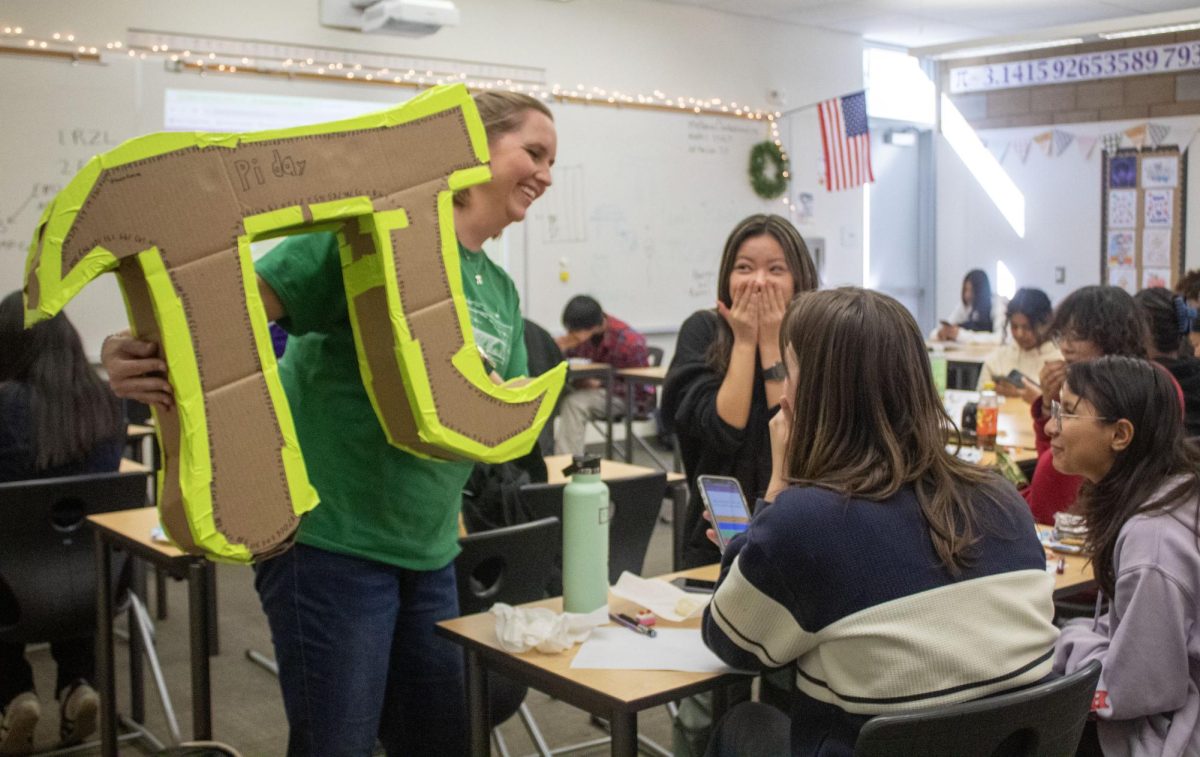Although holidays typically evoke images of decorations and seasonal treats, math teacher Melanie Clarke finds her joy in a different type of celebration –– one that revolves around a mathematical constant. Just as pi (π) itself is never-ending, Clarke finds Pi Day (March 14) a time to indulge in endless festivities.
Clarke’s interest in Pi Day began when she came across Mole Day in Brigham Young University’s science building during her sophomore year of college, inspiring her to come up with a similar celebration for the math lab she worked in. After realizing that Pi Day fell on her birthday, it sparked a tradition at her college in which she received nearly 30 pies on the special day each year.
“It was generally excitement because it gave us something to look forward to and advertise,” Clarke said. “Math is not usually everyone’s favorite subject, so anything little that we can celebrate like this is a fun thing to do. Everyone was kind of rallied behind it.”
While celebrating Pi Day remained a tradition in Clarke’s math lab, after graduating, she became distant from the holiday without the enthusiasm from her college community. It was not until 10 years later when a stranger wished Clarke a “Happy Pi Day” that she took the initiative to reintroduce it into her personal and professional lives.
“I just didn’t think about making a celebration because no one else really celebrated,” Clarke said. “It was different for me being with my peers in college than being in a school as a young teacher trying to establish something. And it was when I heard other people were celebrating it that I was like ‘wait, I need to be doing more.’”
Clarke now plans activities and gives out prizes in her math classes each Pi Day in hopes to excite and engage her students. She said that during one of her earliest years as a teacher, she prompted students to calculate pi, and last year, she had students write a proof on why Clarke is a genius based on the fact that she shares her Pi Day birthday with Albert Einstein.
“I thought [the activities] were very fun and inventive,” Clarke’s student and freshman Peter Cooke said. “I liked it a lot. It definitely made me look forward to this class more than usual.”
While Clarke said she enjoys activities that encourage individual critical thinking like the ones she has done in past years, she chose to incorporate more group-related ones now, such as trivia or bingo, seeing as students become more eager. These lighthearted and fun activities still strike a balance between educational enrichment and student enjoyment, according to Clarke.
“I just want to be able to find a fun thing that relates to Pi Day that everyone will want to do but doesn’t take too much time,” Clarke said. “That’s my goal in life. This day is so special to me.”





